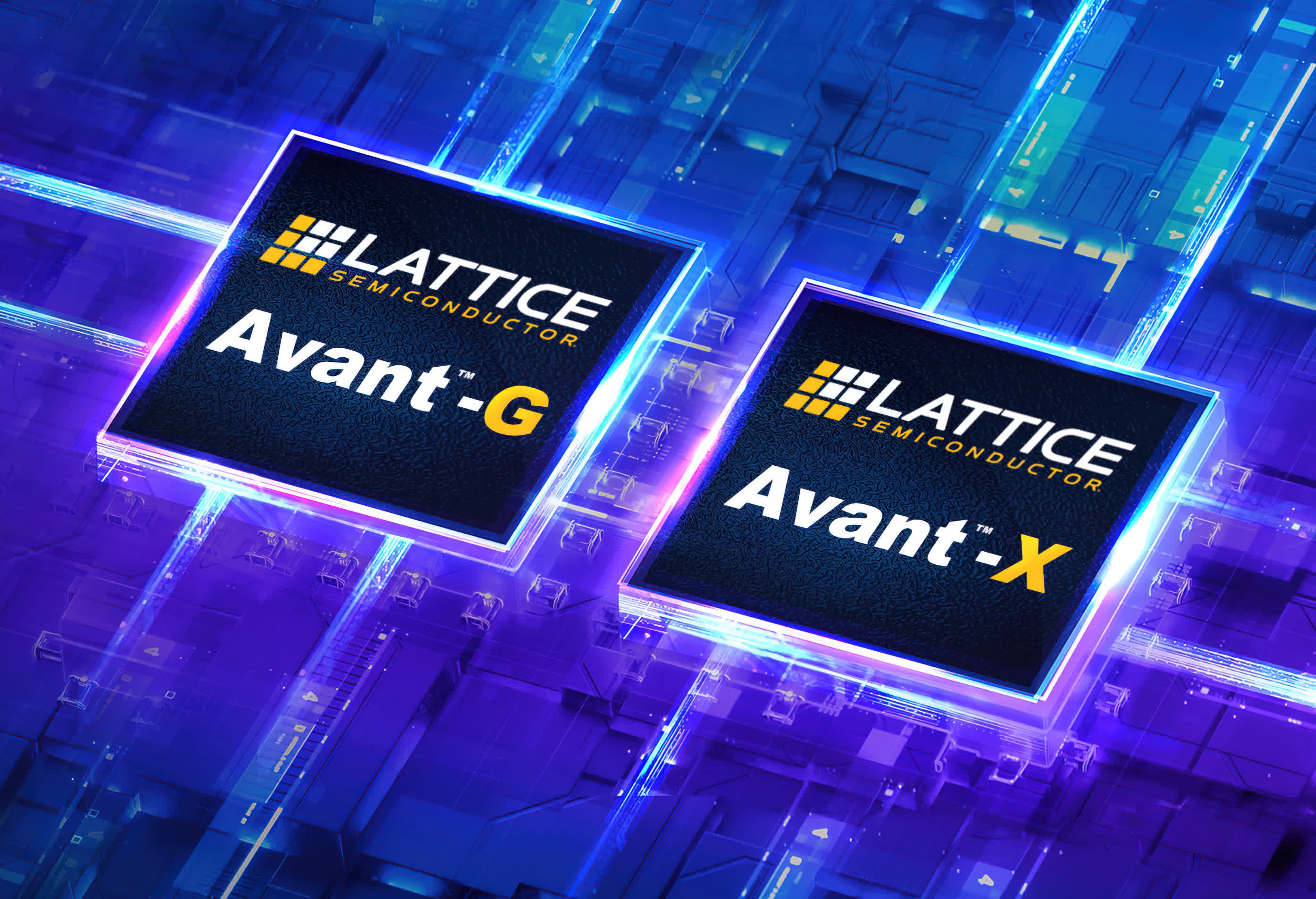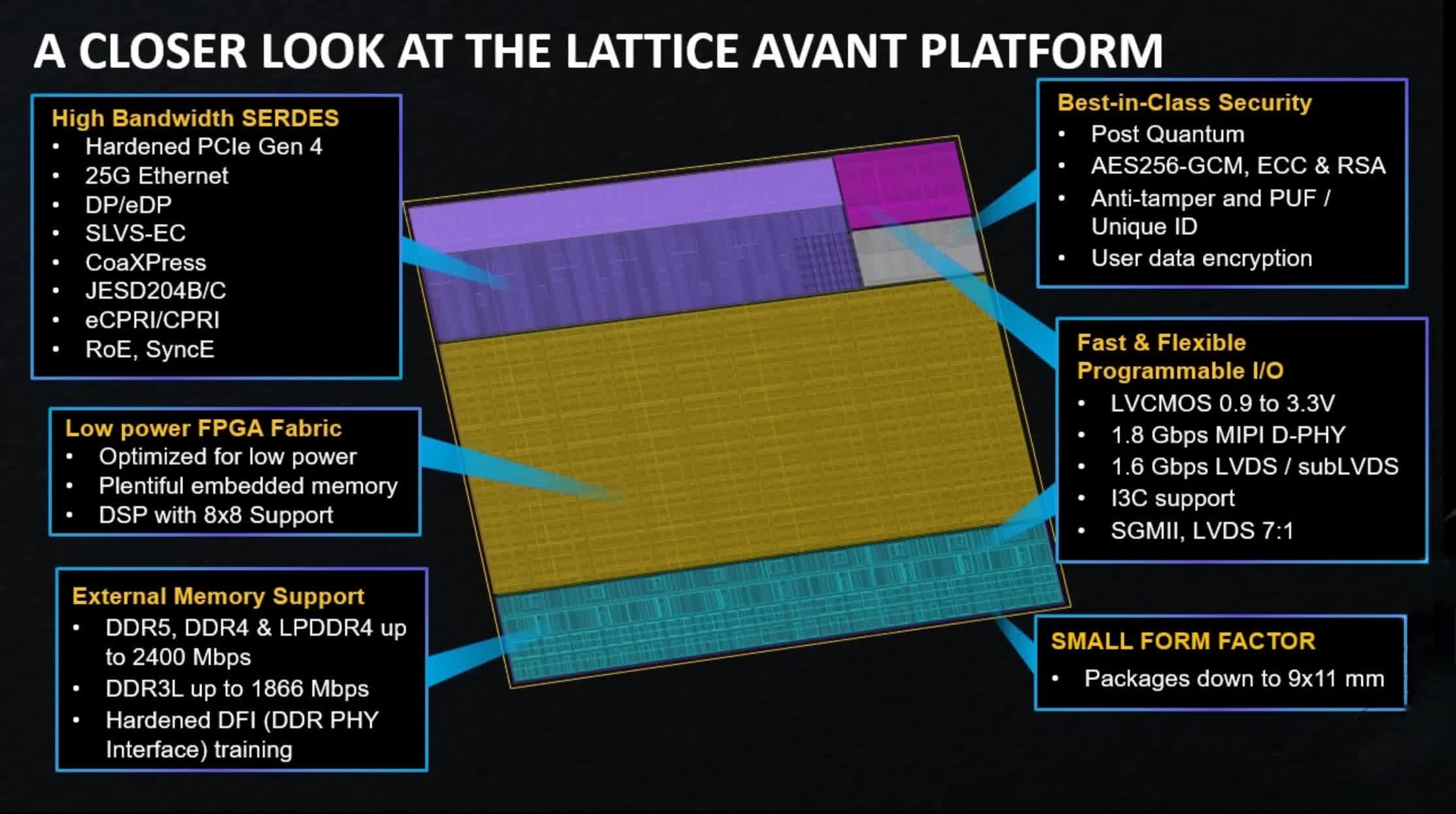Why it matters: Even though the tech industry has been giving a lot of attention to semiconductors recently, most of it has been focused on the big ones: GPUs, CPUs and now NPUs. Often lost in the shuffle are chips based on other types of architectures, such as FPGAs. These types of devices typically perform critical but often unsung tasks in a wide range of applications, including data centers, PCs, automotive, telecom, industrial, cloud computing and much more.
Lattice Semiconductor made a compelling case for the entire category of programmable chips at its recent developer event, with two new additions to its Avant line of mid-range FPGAs (Field Programmable Gate Arrays): the general-purpose Avant G, and the connectivity-focused Avant X. These chips build on the Avant line introduced last year that's optimized for edge computing.
The Avant G adds support for LPDDR4 memory interfaces at speeds up to 2,400 Mbps, while the X adds support for higher-speed connectivity, allowing total throughput of up to 1 Terabit per second (SerDes link speed of 25 Gbps) and a hardware security engine for cryptographic purposes.
Both chips also enable more sophisticated interface bridging applications, allowing for connections and pre-processing of data coming from sensors and other inputs before being passed along to the system's host CPU.
As with any chip category, the hardware is only part of the equation. Lattice is also debuting upgrades to its range of software stacks as well as software enhancements to its line of FPGA programming tools. The Lattice solution software packages are each focused on enabling capabilities for specific applications, and the company introduced enhanced versions of its SenseAI for edge AI applications, mVision for computer vision, Sentry for security applications, and Automate for industrial automation purposes.
On the general-purpose FPGA programming side, the company showed new versions of its Propel and Radiant applications that support the new Avant chips, and an upgraded version of its Glance by Mirametrix application, which is focused on vision-based edge AI applications.
To add a practical element to the news, Lattice Semi had three high-profile customers talk about how they're working with the FPGAs in critical real-world applications...
BMW announced a new partnership with Lattice and talked about how it is starting to deploy Lattice Semi chips in its most advanced auto manufacturing facility.
Meta talked about the critical role Lattice FPGAs play for security purposes across its range of data centers. Meta discussed capabilities like hardware root of trust and device attestation and how the chips help ensuring consistency and safety in its server supply chain, as well as assisting in the reliability of firmware updates.
The most interesting example came from Nvidia, which described how it is using Lattice FPGAs for sensor fusion and bridging as part of its Nvidia Orin platform. Essentially, the Lattice chips provide a seamless interface connection across the wide range of sensors found in robotics and other industrial devices to their onboard CPUs and GPUs.
This makes the process of putting together edge AI applications based on those platforms much easier. Taken together, these customer stories provided a fresh set of examples for how these little understood chips play an important and wide-ranging set of roles across various industries.
The practical reality is that not everyone can appreciate the kind of behind-the-scenes roles that FPGAs often play. But for those involved with systems design across the wide range of industries in which these devices can be used, there's little doubt of the value they can provide. And, looking ahead, as organizations start to think about developing more advanced AI on the edge types of applications, the new mid-range Avant chips and accompanying software tools could end up providing the secret sauce that allows them to create exactly what they're hoping to achieve.
Bob O'Donnell is the founder and chief analyst of TECHnalysis Research, LLC a technology consulting firm that provides strategic consulting and market research services to the technology industry and professional financial community. You can follow him on Twitter @bobodtech

